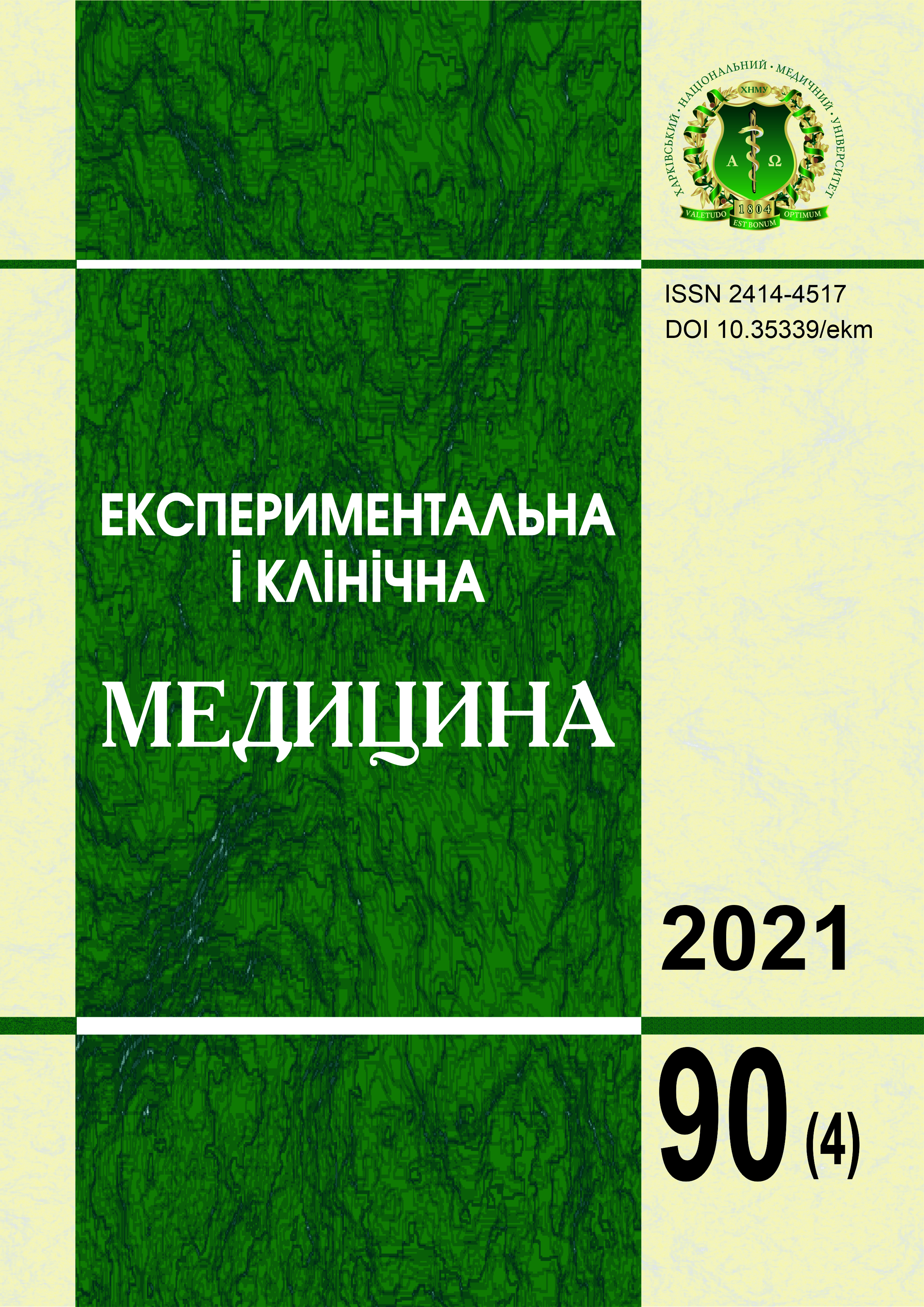Abstract
In Ukraine, the main burden of caring for a patient is borne by his relatives. As the patient’s condition worsens, the burden on the caregiver also increases, the problem of maladjustment of dementia patients’ relatives is urgent, because this disease not only worsens the quality of patient’s life, but also leads to large material and non-material costs due to the need for constant monitoring of persons with severe forms of dementia. In order to achieve the set goal, a comprehensive clinical psychopathological and psychodiagnostic examination of 93 dementia patients (45 women and 48 men) and 97 of their relatives who provided care for the patients (56 women and 41 men) was conducted by us. For the majority of examined women and men, relative with dementia became a psychotraumatic situation. Based on the received data, it was developed a program of medical and psychological support for patients with dementia and their family members, which is aimed at their reorientation from fixation on the problems as a result of the disease, to focusing on adaptation and resocialization of the patient, restoration of life satisfaction, optimization of interpersonal interaction. The program included the complex use of psychotherapy, psychoeducation and occupational therapy methods. As the results of the dynamic observation showed, against the background of the application of the proposed system of medical and psychological support, stable positive dynamics of the psychological state of dementia patients and their family members were noted, with a statistically significant reduction in anxiety-depressive states, a decrease in family conflict, and the harmonization of marital relations. The positive dynamics of family functioning was noted with the prevalence of an adequate attitude of relatives to the disease, understanding complexity of the disease, optimization of compliance, a conscious willingness to follow the doctor’s recommendations with the formation of realistic expectations for treatment.
Keywords: cognitive disorders, mental health support, resocialization, complex therapy.
References
Kaminskyi YuH, Kosenko YeA. Popular and not even about Alzheimer's disease. Odesa: Librokom; 2009. 136 p. [In Ukrainian].
Kaminska A. System of medical-psychological support of the family where a patient with endogenous mental disorder lives. Norwegian Journal of Development of the International Science. 2019;37(1):15-21. Available at: https://nor-ijournal.com/wp-content/uploads/2020/09/NJD_37_1.pdf
Maruta NO, Shevchenko-Bitenskyi KV. Prohrama kompleksnoi personifikovanoi psykhosotsialnoi reabilitatsii patsiientiv z haliutsynatorno-paranoidnymy rozladamy pry sudynnii dementsii. Visnyk problem biolohii i medytsyny. 2019;2,(4(154)):144-9. Available at: https://is.gd/pbnROE [in Ukrainian].
Hrant B. Alzheimers Disease. A Carers Guide. Series: Doctor's advice. Dnipro: Norynt, 2003. 80 p.
Mudrenko IH. Neiroprotektsiia kohnityvnoho defitsytu u khvorykh z dementsiiamy altsheimerivskoho ta nealtsheim erivskoho typiv. Arkhiv psykhiatrii. 2017;23(3(90)):185-90. URL: http://surl.li/fyhkf [in Ukrainian].
Shevchenko-Bitenskyi KV. Peculiarities of social functioning of patients with vascular dementia, complicated by hallucinator-paranoid disorders. 2019;4(28):43-8. DOI: 10.25040/lkv2019.04.033. [In Ukrainian].
Pinchuk IIa, Chaikovska VV, Stadniuk LA, Levada OA, Pustovoit MM, Shyriaieva MI. Aktualni pytannia herontopsykhiatrii: navchalnyi posibnyk (vydannia druhe, dopovnene). Ternopil: TzOV Terno-hraf; 2018. 432 p. [In Ukrainian].
Dementia. Unified clinical protocol for primary, secondary, (specialized), tertiary (highly specialized and palliative medical care for dementia, confirmed by Order of the Ministry of Health of Ukraine No.736 on 19 Jul 2016. State Expert Center of the Ministry of Health of Ukraine. Available at: https://www.dec.gov.ua/wp-content/uploads/2019/11/2016_736_ykpmd_dem.pdf [in Ukrainian].
Kozhyna HM, Zelenska KO, Kraskovska TYu. Features of the treatment of Alzheimer's disease in modern minds. Materials of the 3rd International Scientific and Practical Conference "People's Faces. Current problems of pharmacotherapy and the importance of medicines" (Kharkiv, NUPh; 14–15 Mar 2019). In 2 vols, vol. 2. P. 139-40. Available at: https://is.gd/6ECaEg [in Ukrainian].

